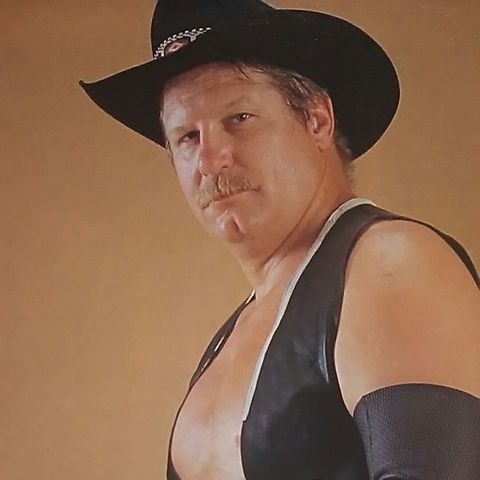"Stan Hansen: The Gaijin Bulldozer Unleashed - A Cornette Chronicles Special"

Download and listen anywhere
Download your favorite episodes and enjoy them, wherever you are! Sign up or log in now to access offline listening.
"Stan Hansen: The Gaijin Bulldozer Unleashed - A Cornette Chronicles Special"
This is an automatically generated transcript. Please note that complete accuracy is not guaranteed.
Description
Get ready to dive deep into the untold stories of one of the most feared and respected gaijins in Japanese wrestling history, Stan Hansen. In this riveting shoot interview, hosted...
show more- Influence of Rikidōzan on Japanese Wrestling (00:01 - 03:17): The success of American-style pro wrestling in Japan traces back to Rikidōzan, a former sumo star who became a national hero in Japan through his wrestling matches against American opponents, eventually founding the Japanese Wrestling Association (JWA) in 1954. His influence was so significant that he handpicked Antonio Inoki and Giant Baba as his successors.
- Giant Baba and Antonio Inoki's Impact (03:17 - 06:10): After Rikidōzan's murder in 1963, Giant Baba and Antonio Inoki became the dominant figures in Japanese wrestling, founding All Japan Pro Wrestling and New Japan Pro Wrestling, respectively. They maintained control over the industry for decades, with Baba being known for his honesty and integrity, and Inoki for his self-promotion.
- Stan Hansen's Experience in Japan (06:10 - 38:35): Stan Hansen discussed his early career in Japan, starting in 1975, highlighting the differences in wrestling styles and the professional atmosphere. He noted the financial rewards of wrestling in Japan and shared anecdotes about interacting with Japanese wrestlers and adapting to the culture.
- Rivalry Between Baba and Inoki (46:42 - 1:05:54): Hansen described the competition between Baba and Inoki, both in terms of promoting wrestling and managing talent. Despite their different philosophies, both were able to bring in top American wrestlers and maintain a strong following in Japan. Hansen also discussed his own career decisions, balancing commitments between both promotions.
- Legacy and Transition (2:00:01 - 2:22:36): Hansen reflected on the end of his wrestling career, his retirement in 2001, and his deep connection to Japan, where he chose to spend much of his career. He mentioned the challenges of the wrestling industry in Japan during the 1990s and the eventual decline of traditional wrestling promotions as new challenges arose.
Information
Copyright 2024 - Spreaker Inc. an iHeartMedia Company
